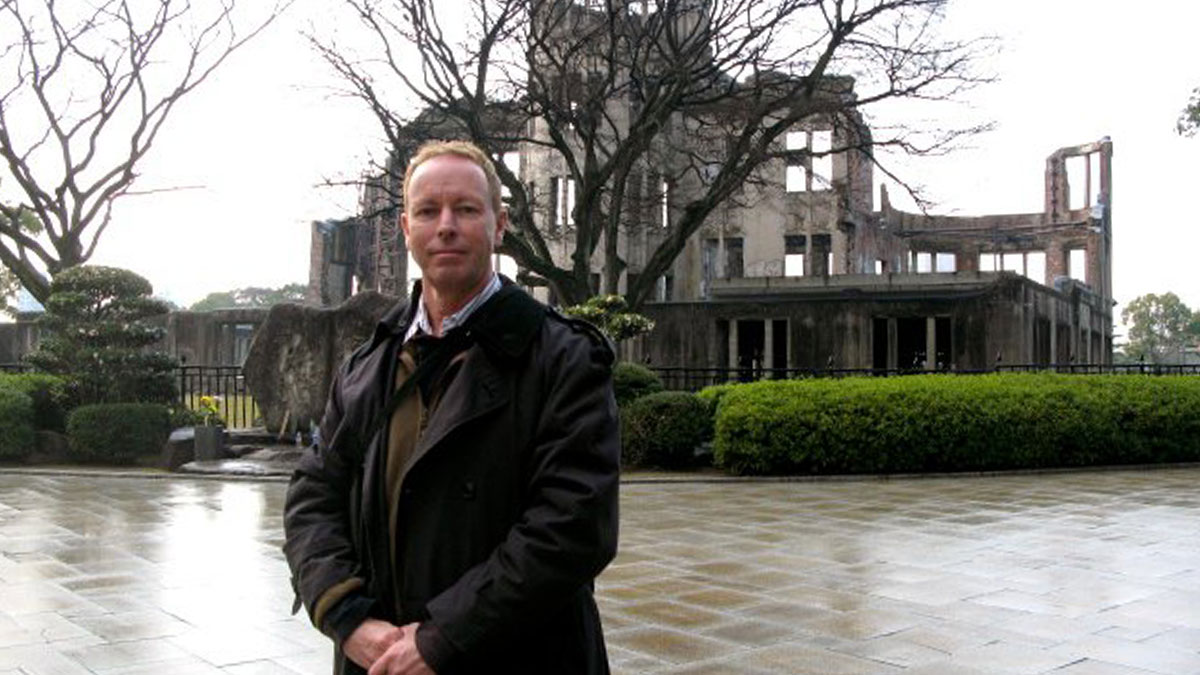70 years after Hiroshima: Faculty of Arts to host conference, Hiroshima atom bomb survivor on Sept. 18 to 19
 Supplied
SuppliedMost undergrads only remember the threat of atomic warfare through Cold War films and high school classes. This weekend, an on-campus conference will give the opportunity to hear from a more diverse array of perspectives.
This year marks the 70th anniversary of the Hiroshima disaster, which will be remembered Friday, Sept. 18 and Saturday, Sept. 19 by the University of Alberta’s Faculty of Arts, who is hosting an international conference on Japan and the atom bomb.
“Seventy Years After Hiroshima: Conceptualizing Nuclear Issues in Global Contexts” will have speakers from abroad and U of A.
The purpose of “Seventy Years After Hiroshima” is to expose attendees to many issues in nuclear technology. Topics cover the bombing and aftermath of Hiroshima and Nagasaki, Japan, the development of nuclear weapons during the Cold War, and peace campaigns against them. Present day topics such as nuclear meltdowns and medicine use are covered as well.

“We want to focus on what lessons Japan can give to the world,” Fujiwara said. “Ironically, Japan is the only nation that experienced catastrophe caused by the atomic bomb. At the same time, it’s one of the few countries that experienced a nuclear accident.”
Lecturers include keynote speaker Ritsuko Komaki, a radio oncologist at the University of Texas. Komaki’s life has always been connected to radiation, through life and career. Born in 1944, she was an infant in Osaka at the time of the bombings. The majority of her family lived in Hiroshima, making the disaster impactful on her life. Komaki’s family moved to Hiroshima when she was four, so her early life was spent in the reconstruction era. She later went on to study radiation oncology and use the atom for medical purposes, which she will speak on, as well as her experience of living post-atomic bomb.
In the near future, society won’t be able to hear the first-person accounts of living in the direct aftermath of an atomic bomb, Fujiwara said.
“Anyone born in 1945 is already 70, so generational change is happening,” she said. “Probably, for the 80th and 90th anniversaries, nobody who actually experienced the bomb will be left.”
Other lecturers from abroad include professor Osamu Ieda of Hokkaido University, who will be speaking about the aftermath of the Chernobyl and Fukushima nuclear disasters, and Noriyuki Kawano of Hokkaido University, who will speak on the discrimination towards those afflicted by atomic bombs.
Many institutions often go outside their campus to hold events like this to get a larger audience, Fujiwara said.
“If we have resources at the U of A, but don’t have the conference at the U of A, we’re almost losing the opportunity, especially for students, to be involved,” she said.
Though the bombings occurred in August of 1945, “70 Years After Hiroshima” is held in the fall to make it more accessible for students. The conference will hopefully get students to think about where they are, both locally and globally, Department Chair of History and Classics David Marples said.
“Seventy Years After Hiroshima” brings Japanese perspective to a topic largely known through Eurocentric film — stories of the Unites States saving a million citizens. In reality, Japan had an army of 32,000 active military and was unlikely to kill so many people,” Marples said. “The North American perspective on the topic tends to be skewed.”
“We know a lot about the American side of this,” he said. “We don’t really hear the Japanese side at all.”
Students are encouraged to attend, and those registered will be served free lunch. Lectures and panels will take place in Telus Center from 8:30 AM to 5:30 PM on Friday and 8:30 AM to 6:00 PM on Saturday.
Students can register online.




